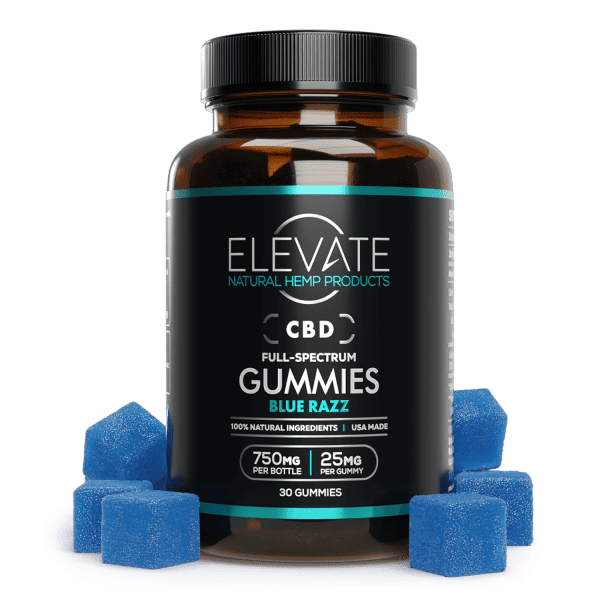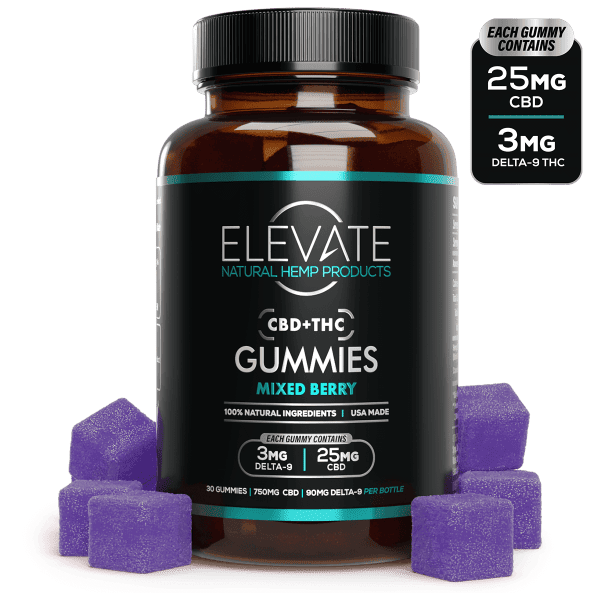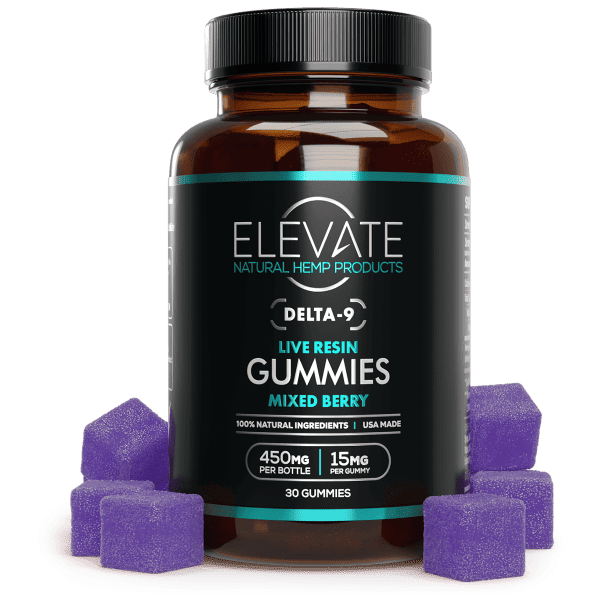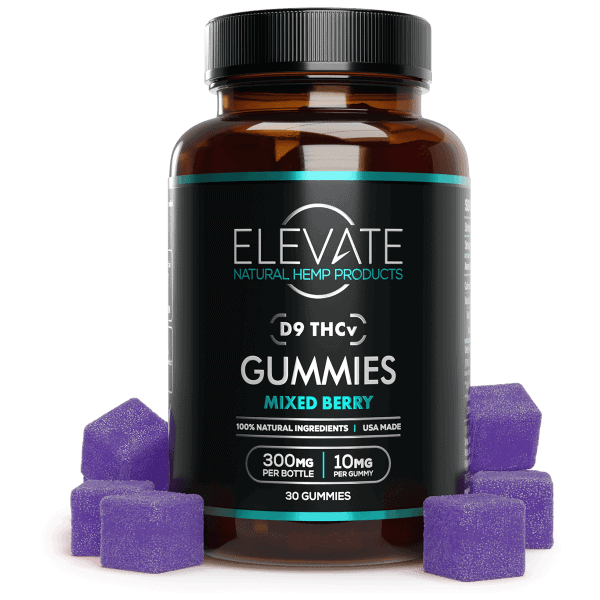
How Long Does Delta 9 Stay In Your System?
Delta 9 is a remarkable compound and is one of the star players in the cannabis plant. Known for its vibrant effects and rich history, Delta 9 has blossomed into an icon of both the recreational and therapeutic worlds. People laud it for the sense of euphoria, relaxation, and the myriad of potential wellness benefits it offers.
This blog post zeroes in on one particular aspect: How long does Delta 9 stay in your system? This is a question often posed by both casual and medicinal users. We’ll not only explore the duration for which this compound can linger in your body but also shed light on the different methods used to detect Delta 9 in your system.
How Long Does Delta 9 THC Stay In Your System?
Understanding Delta 9
Let’s begin by unwrapping the science behind Delta 9. It is a cannabinoid, one of the natural compounds found in cannabis plants. With its chemical formula of C₂₁H₃₀O₂, Delta 9 boasts a structure that allows it to interact harmoniously with the body’s endocannabinoid system. It particularly engages with the CB1 receptors in the brain, resulting in a symphony of sensations that are often described as uplifting and invigorating.
Delta 9 graces us through various sources, mainly cannabis plants, which include marijuana and hemp. While the cannabis plant hosts a variety of cannabinoids, Delta 9 has a special place, shining like a jewel in a crown. The wonders of Delta 9 are harnessed in an array of cannabis products, ranging from dried cannabis flowers, oils, and tinctures, to delta 9 gummies, each promising a unique experience.
So, what makes Delta 9 the talk of the town? For starters, it is famous for inducing feelings of euphoria and relaxation, which many find to be an excellent way to unwind. Moreover, it’s not just about feeling good; Delta 9 is also acclaimed for its potential therapeutic benefits.
It has been embraced in the wellness community for its ability to alleviate pain, reduce inflammation, and even potentially bolster mental well-being. The myriad of applications and the potential for a richer, more balanced lifestyle are what make Delta 9 a treasure worth exploring.
How Does Delta-9 Get into Your Body?
One of the most common ways to introduce Delta-9 into your body is through inhalation. Imagine the scene: you’re holding a joint or a pipe, ready to take that first puff. As you inhale, the smoke travels into your lungs. Within those precious lung tissues, Delta-9 quickly diffuses into the bloodstream, riding the waves of oxygen-rich red blood cells to reach every corner of your body.
Inhalation provides a rapid onset of effects, delivering the Delta-9 directly to your brain and other organs in a matter of minutes. But inhalation isn’t the only route to invite Delta-9 into your system. Another popular method is through edibles.
When you consume an edible infused with Delta-9, such as a delectable brownie or a tasty gummy, the journey begins in your digestive system. As you chew and swallow, the edible makes its way down to your stomach. From there, the Delta-9 enters the bloodstream through the walls of your intestines. But hold on, the adventure doesn’t end here.
Delta-9 takes a detour to your liver, where it undergoes a process called first-pass metabolism. In this transformation, Delta-9 is converted into a potent metabolite called 11-hydroxy-THC. This metabolite adds its own unique effects to the overall experience. After the liver has worked its magic, Delta-9, and its psychedelic sidekick are released back into the bloodstream, ready to dazzle you with their effects.
For those seeking localized relief, topicals provide a delightful option. These cannabis-infused lotions, creams, and balms are applied directly to the skin. As you massage the topical into your skin, the Delta-9 interacts with the cannabinoid receptors present in your epidermis. While topicals do not typically produce psychoactive effects, they can provide localized relaxation and relief.
Vapes and carts have also gained popularity as a modern method of consuming Delta-9. These devices heat cannabis flowers or extracts to a temperature that releases the compounds, including Delta-9, in the form of vapor. As you inhale the vapor, Delta-9 enters your lungs, where it swiftly crosses into the bloodstream. Vaporizers offer a smoother and potentially less harsh experience compared to traditional smoking methods, with effects kicking in within minutes.
Each consumption method offers its own unique characteristics and considerations. The onset, duration, and intensity of effects can vary depending on the method chosen. Inhalation and vaporization typically provide a faster onset, while edibles can take longer to take effect as they must navigate the digestive system. It’s essential to be mindful of dosage and start low, especially with edibles, as their effects can be more potent and prolonged.
No matter which method you choose to welcome Delta-9 into your body, it’s crucial to consume responsibly, following legal regulations and guidelines. Understanding how Delta-9 enters your system empowers you to make informed decisions and tailor your experience to your desired outcomes.
Metabolism and Elimination of Delta 9 – What Factors Affect How Long THC Is Detectable?
When Delta 9 is consumed, it enters your bloodstream and is transported to your liver, where it undergoes metabolism. The liver is the primary organ responsible for breaking down Delta 9. In this process, Delta 9 is converted into several metabolites, one of which is 11-hydroxy-THC. Like Delta 9, 11-hydroxy-THC has psychoactive properties and contributes to the effects experienced by the user.
However, the metabolism and elimination of Delta 9 are not simple, linear processes. There are several factors that can influence how quickly Delta 9 is metabolized and eliminated from your system.
Frequency of Use
Regular users of Delta 9 may experience a different metabolic response compared to occasional users. When Delta 9 is consumed consistently over time, the body may start storing Delta 9 metabolites in fat tissues. These metabolites can linger in the body for an extended period, resulting in a slower elimination process. As a result, frequent users may have detectable levels of Delta 9 in their system for a longer duration than infrequent users.
Dosage
The amount of Delta 9 consumed directly affects the time it takes for the body to eliminate it. If you consume a higher dose of Delta 9, there is more of the substance that needs to be processed by the liver. The liver plays a crucial role in metabolizing Delta 9 and its metabolites.
With a larger dose, the liver has a greater workload, potentially prolonging the elimination process. So, higher doses can result in Delta 9 staying in your system for a longer period.
Metabolism Rate
Each person has a unique metabolic rate, which refers to how quickly the body processes substances. People with higher metabolic rates tend to metabolize Delta 9 more efficiently, leading to a shorter duration of detection. Factors such as age, genetic makeup, overall health, and even physical activity levels can influence your metabolic rate. Those with faster metabolism rates may eliminate Delta 9 more rapidly than individuals with slower metabolism rates.
Body Composition
Delta 9 is lipophilic, meaning it has an affinity for fat molecules. Consequently, individuals with higher levels of body fat may retain Delta 9 metabolites for a longer period. When Delta 9 is consumed, it can be stored in fat cells throughout the body.
This storage process can result in slower elimination of Delta 9, as the compound remains bound to fat molecules. Therefore, individuals with higher body fat percentages may have a prolonged duration of Delta 9 detection compared to those with lower body fat percentages.
Method of Consumption
The way you consume Delta 9 also affects its metabolism and elimination. When Delta 9 is smoked or vaporized, it enters the bloodstream more rapidly through the lungs, allowing for quicker effects. In contrast, when Delta 9 is ingested orally, such as through edibles, it has to pass through the digestive system before reaching the bloodstream.
This process takes longer, as Delta 9 is metabolized by the liver before entering circulation. As a result, the elimination of Delta 9 from edibles tends to be slower compared to smoking or vaporizing.
Considering these factors, it becomes evident that the time Delta 9 stays in your system can vary widely. On average, Delta 9 can stay in the blood for a few hours to a couple of days.
However, for regular users, metabolites of Delta 9 can be detected in urine tests for up to 30 days or more after the last use. In a saliva test, Delta 9 can usually be detected for 1 to 30 days, depending on the frequency and quantity of use.
Can You Fail A Drug Test After Taking Delta 9?
If you’ve recently consumed Delta 9, especially in higher doses, there is indeed a chance that it can be detected in a drug test. The detection window for a positive drug test for Delta 9 varies based on the factors mentioned above.
For occasional or infrequent users, Delta 9 and its metabolites are typically eliminated from the body relatively quickly. In most cases, Delta 9 can be detected in urine for a few days up to a week after use. However, for regular or heavy users, Delta 9 and its metabolites can remain detectable in urine tests, for a longer period, ranging from a couple of weeks to several months
If you’re concerned about a potential drug test, it’s always a good idea to be mindful of your Delta 9 consumption habits. Consider factors such as the frequency and amount of Delta 9 you consume, as well as the time between your last use and the upcoming drug test. If you know you have a drug test coming up, abstaining from Delta 9 use is the safest way to ensure a negative result.
Common Drug Testing Methods For Delta 9
When it comes to testing for the presence of Delta 9 THC, the most common method used is urine testing. This type of drug test is widely employed due to its convenience, non-invasiveness, and cost-effectiveness.
Urine Testing
Urine tests are popular because they can detect the presence of Delta 9 THC and its metabolites, primarily THC-COOH, in the body. After Delta 9 THC is metabolized by the liver, THC-COOH is produced and eliminated through urine. Urine testing can determine recent cannabis use and is often used in various settings, including employment screenings and athletic competitions.
The detection window for Delta 9 THC in urine depends on several factors, such as frequency of use, dosage, metabolism rate, and individual body characteristics. For occasional users, Delta 9 THC is typically detectable in urine for a few days up to a week after use. However, for regular or heavy users, the detection window can extend to several weeks or even months. It’s important to note that the cutoff levels for a positive drug test result can vary among different testing laboratories and organizations.
Other Common Testing Methods
While urine testing is the most prevalent method, other drug testing methods can also be used to detect the presence of Delta 9 THC. These include:
- Blood Testing: Blood tests are less common but may be utilized in specific situations, such as post-accident investigations or assessing impairment. Delta 9 THC is detectable in the bloodstream for a relatively short period. For occasional users, it may be detected for a few hours to a couple of days, while regular users may have detectable levels for a slightly longer duration from 1 to 25 days.
- Saliva Testing: Saliva tests are becoming more popular due to their ease of use and non-invasive nature. These tests can detect Delta 9 THC for a shorter duration compared to urine testing. Delta 9 THC is generally detectable in saliva for a few hours to a few days after use.
- Hair Testing: Hair tests have a much longer detection window compared to other methods. This type of testing can detect Delta 9 THC and its metabolites in hair strands for a period of up to 90 days or longer. However, it’s worth noting that hair testing is less commonly used due to its higher cost and the potential for false positives.
Can You Get Delta 9 Out Of Your System Faster?
So, you’re eager to speed up the process of getting Delta 9 out of your system? While there’s no special trick to instantly eliminate it, there are a few things you can do to potentially help the process along. Let’s explore some strategies in a casual and informative tone.
Hydrate, Hydrate, Hydrate
Drinking plenty of water can support your body’s natural detoxification processes. Staying well-hydrated helps flush out toxins, including Delta 9 and its metabolites. Aim to drink an adequate amount of water throughout the day, but don’t go overboard. Balance is key!
Stay Active
Engaging in regular physical activity, such as exercise or sweating through activities like sauna sessions, may aid in the elimination of Delta 9. Physical activity can increase your metabolic rate and blood circulation, potentially helping to expedite the removal of Delta 9 from your system.
Eat a Healthy Diet
A nutritious diet can provide your body with the essential nutrients it needs to function optimally. Include plenty of fruits, vegetables, lean proteins, and whole grains in your meals. Certain foods, such as those rich in fiber, can support digestion and help eliminate waste products from your body.
Give It Time
Unfortunately, there’s no way to completely rush the elimination of Delta 9 from your system. The process takes time as your body metabolizes and excretes the compound and its metabolites. Patience is key, so allow your body the necessary time it needs to naturally clear Delta 9.
Consider Personal Factors
Keep in mind that everyone’s body is unique, and individual factors like metabolism rate, body composition, and overall health can influence the elimination process. Factors such as frequency and amount of Delta 9 consumption also play a role. While you can support your body’s natural detoxification processes, it’s important to be realistic and understanding about the time it takes for Delta 9 to leave your system.
The Bottom Line
Delta-9 can stay in your system for varying durations depending on several factors. While the duration can vary from person to person, it typically remains detectable in urine for about 30 days after use. However, in saliva and blood, the detection window is generally shorter, ranging from a few days to a week. It’s crucial to remember that clearance times can be influenced by various aspects such as individual metabolism, frequency of use, and dosage.
These factors make it challenging to provide an exact timeframe for Delta-9 to completely leave your system. To ensure a responsible approach, it’s important to stay informed about how cannabis affects your body and make well-informed decisions accordingly. So, while Delta-9 may linger for a while, always remember to elevate responsibly and prioritize your well-being.
Related Posts
Live Resin Carts vs Normal Carts
Are you curious about the buzz surrounding live resin carts and how they compare to traditional vape cartridges? Live resin carts have surged in popularity …
Does THCa Get You High?
Curious about THCa and its effects? You’re not alone. As cannabis research expands, more light is shed on the lesser-known compounds in the plant. THCa, …










